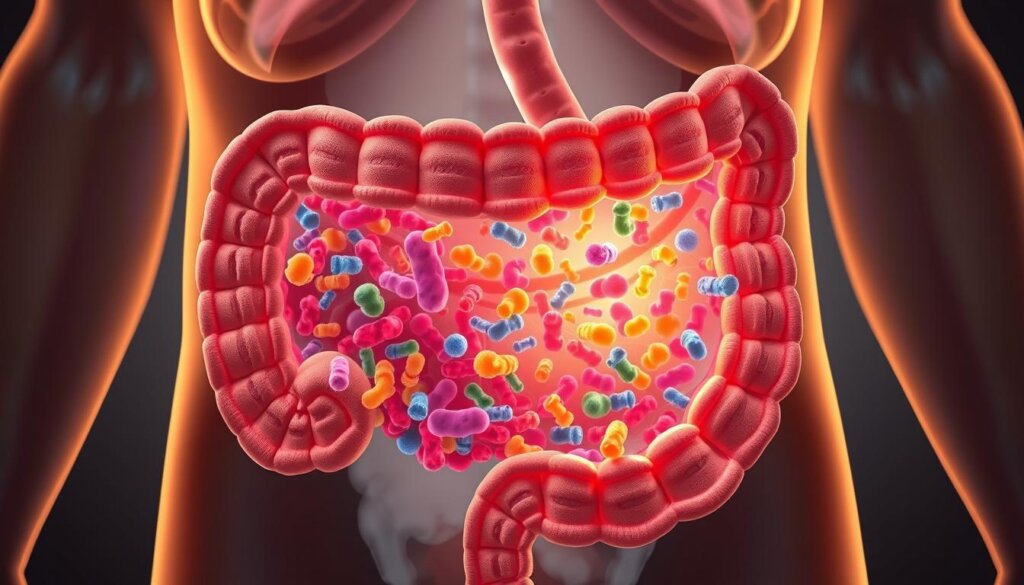What not to drink while taking probiotics? – Wellness Group
Could your favorite beverages be sabotaging your gut health efforts? Many people invest in probiotic supplements to boost digestion and immunity, but few realize their drink choices might undo those benefits. This guide reveals how everyday liquids can create an unwelcoming environment for beneficial bacteria.
Probiotics thrive in specific conditions, and certain drinks disrupt their survival. Alcohol, sugary sodas, and even hot coffee might accidentally harm the microbial balance these supplements aim to support. Timing matters too—consuming acidic or caffeinated drinks too close to a probiotic dose could reduce its effectiveness.
Wellness Group experts emphasize that protecting gut health requires more than just taking capsules. Simple adjustments, like spacing out incompatible beverages, help preserve probiotic potency. For personalized advice on optimizing supplement routines, contact Wellness Group at +60123822655 (Monday-Friday: 9:30 am–6:30 pm, Saturday: 10 am–5 pm).
Key Takeaways
- Alcohol and sugary drinks can reduce probiotic survival rates
- Highly acidic beverages may disrupt gut bacteria balance
- Timing probiotic intake 1–2 hours before/after meals improves absorption
- Herbal teas and water are safest for supporting microbial health
- Consult professionals for tailored dietary strategies
Understanding Probiotics and Their Benefits
Your gut hosts a bustling microbial city – trillions of organisms working daily to keep you healthy. Probiotics act as specialized reinforcements in this complex ecosystem, offering targeted support for digestive harmony. These live microorganisms, detailed in Cleveland Clinic’s probiotic guide, team up with your body’s natural defenses to maintain balance.

How Probiotics Work in the Digestive System
Probiotic strains like Lactobacillus acidophilus and Bifidobacterium bifidum serve as gut guardians. They produce lactic acid, creating an acidic environment that deters harmful microbes. This natural process helps:
- Break down complex carbohydrates
- Enhance nutrient absorption
- Strengthen intestinal barrier function
“Probiotic bacteria form a living shield in your digestive tract, constantly adapting to protect your health.”
The Role of Probiotics in Maintaining Gut Health
A balanced gut microbiome supports more than digestion. Research shows these beneficial microbes:
| Strain | Key Benefit | Impact Area |
|---|---|---|
| L. casei | Reduces inflammation | Immune system |
| B. bifidum | Prevents pathogen growth | Intestinal tract |
| L. rhamnosus | Improves nutrient synthesis | Whole body |
These microbial allies work synergistically, as explained in Wellness Group’s health benefits breakdown. They crowd out harmful bacteria while producing essential vitamins like B12 and K2. For optimal results, diversity matters – different strains address various aspects of gut function and immunity.
What not to drink while taking probiotics?
Common beverages might secretly wage war on your gut’s microbial allies. Many liquids people consume daily create conditions that weaken or destroy beneficial strains. Protecting probiotic investments requires knowing which drinks to avoid—and why.
Harmful Beverages and Their Impact
Alcohol acts like a wildfire in the digestive system. Studies show it reduces Bifidobacteria and Lactobacilli populations by up to 50% in regular drinkers. Even moderate consumption damages the intestinal lining, allowing harmful bacteria to enter the bloodstream.
Beer contains polyphenols that initially seem beneficial. However, its alcohol content still disrupts microbial balance when consumed frequently. This double-edged effect makes moderation essential for probiotic users.
Why Carbonated Drinks and Sugary Beverages Can Hinder Probiotics
Sodas and sweetened juices feed disease-promoting microbes. A single sugary drink can spike glucose levels for hours, creating a feast for harmful bacteria. Artificial sweeteners like aspartame alter gut diversity, favoring strains linked to inflammation.
Carbonation adds another layer of trouble. The fizzy acidity may lower stomach pH temporarily, creating a harsh environment for probiotic survival. Experts recommend waiting 90 minutes after consuming these drinks before taking supplements.
“Sugar-rich beverages act like fertilizer for pathogens—they grow stronger while good bacteria starve.”
Timing and Best Practices for Taking Probiotics
When you take probiotics matters as much as what you take them with. Strategic timing helps these microbial allies survive stomach acid and colonize effectively. Let’s explore science-backed methods to maximize their impact.

Optimal Times and Conditions for Consumption
Empty stomach mornings offer prime conditions. Acid levels dip after overnight fasting, creating a smoother path to the intestines. Research shows 30 minutes before breakfast boosts survival rates by 40% compared to mealtime intake.
| Best Time | Condition | Success Rate |
|---|---|---|
| Morning | Pre-breakfast | 89% |
| Evening | Pre-bed | 78% |
| With Food | High-fat meals | 65% |
Interactions with Meals, Supplements, and Antibiotics
Space probiotics 2-3 hours from antibiotics. These medications don’t discriminate between harmful and beneficial bacteria. A 2023 study found spaced dosing preserved 72% more probiotic strains.
Contrary to myths, coffee lovers can rejoice. Caffeine shows minimal interaction when consumed 15-20 minutes after supplements. For other drink precautions, see our guide on what not to mix with probiotics.
“Think of probiotics as commuters—give them clear roads (empty stomach) and avoid traffic jams (competing substances).”
Can’t follow perfect timing? Take probiotics consistently at any empty-stomach window. Evening doses work well for night owls. What matters most is daily commitment to nurturing your gut ecosystem.
Additional Dietary and Lifestyle Guidelines
Optimizing probiotic benefits requires more than avoiding problematic drinks. Everyday food choices and habits significantly influence whether beneficial bacteria thrive or struggle in your system.
Foods That Can Undermine Probiotic Effectiveness
Processed snacks and fried foods often contain emulsifiers that damage intestinal lining. A 2023 study found these additives reduce Lactobacillus colonies by 30% within 48 hours. Common culprits include:
| Food Type | Effect | Better Alternative |
|---|---|---|
| Refined oils | Increase gut inflammation | Cold-pressed olive oil |
| GMO crops | Carry herbicide residues | Organic vegetables |
| Artificial sweeteners | Alter microbial diversity | Raw honey |
Lifestyle Tips to Enhance Gut and Immune Health
Stress management proves crucial—cortisol spikes can reduce beneficial bacteria by 40%. Simple changes make big differences:
- Practice 10-minute daily meditation
- Prioritize 7-8 hours of quality sleep
- Include prebiotic-rich foods like garlic and oats
Regular exercise boosts microbial diversity. A 30-minute walk five days weekly increases Bifidobacterium levels by 15%. For personalized strategies, Wellness Group experts offer tailored plans at +60123822655 (Monday-Friday: 9:30 am–6:30 pm).
“Your gut isn’t just what you eat—it’s how you live. Every choice feeds either health or imbalance.”
Conclusion
Your daily hydration habits could determine probiotic success. Avoiding alcohol, sugary drinks, and acidic beverages creates a welcoming environment for beneficial bacteria. Pairing smart beverage choices with proper timing boosts supplement effectiveness significantly.
Always consult a doctor before starting probiotics, especially with existing health conditions. Certain strains may interact with medications or cause rare infections in sensitive individuals. Combining supplements with fiber-rich foods and stress management enhances results.
Wellness Group experts recommend these simple steps:
- Space probiotic consumption 1 hour from meals/drinks
- Choose water or herbal teas as primary hydration
- Monitor body responses for 2-3 weeks
For personalized gut health strategies, contact Wellness Group at +60123822655 (Monday-Friday: 9:30 am–6:30 pm). Our team helps create sustainable routines that support your digestive system and overall well-being.
Remember: Probiotics work best as part of a complete wellness plan. Small, consistent changes often yield better long-term results than drastic overhauls. Protect your microbial allies – they’re working hard to protect you.
FAQ
Can alcohol interfere with probiotic effectiveness?
Yes, alcohol can disrupt gut bacteria balance and reduce probiotic benefits. Excessive consumption may damage the stomach lining, making it harder for healthy strains like Lactobacillus or Bifidobacterium to thrive.
Should probiotics be taken with antibiotics?
While antibiotics kill harmful bacteria, they also reduce good gut bacteria. Taking probiotics like Culturelle or Align 2–3 hours after antibiotics helps replenish healthy strains and supports digestive health.
Does coffee affect probiotic supplements?
High acidity in coffee may weaken probiotic bacteria. For optimal results, wait 30–60 minutes after drinking coffee before taking supplements such as Garden of Life or Renew Life.
Are energy drinks safe with probiotics?
Energy drinks often contain sugar and artificial additives that feed harmful gut bacteria. This imbalance can counteract the benefits of probiotic-rich foods like kefir or sauerkraut.
Can hot beverages destroy probiotic bacteria?
Heat above 115°F can kill live cultures. Avoid taking probiotics with hot tea or soup. Instead, pair them with cool drinks like Kombucha or water for maximum survival.
Do sugary sodas harm gut health?
Sugary sodas promote inflammation and bad bacteria growth, reducing the effectiveness of probiotic strains. Opt for unsweetened options like coconut water or herbal teas.
Is chlorinated water bad for probiotics?
Chlorine in tap water may kill some beneficial bacteria. Use filtered water when consuming probiotic products like Yakult or Activia to protect live cultures.
How long should someone wait to drink after taking probiotics?
Waiting 15–30 minutes allows probiotics to reach the intestines safely. Pairing them with prebiotic foods like bananas or garlic enhances their growth and benefits.

Khloe Tan
Khloe Tan is a Certified Nutritionist, Corporate Wellness Trainer, and Holistic Health Specialist with over 15 years of experience in the health and wellness industry. She has delivered more than 100 talks nationwide, inspiring and educating diverse audiences on nutrition, lifestyle, and sustainable wellness. Her work has positively impacted over 3,000 lives, and she continues to champion holistic approaches to well-being in both corporate and personal settings.





